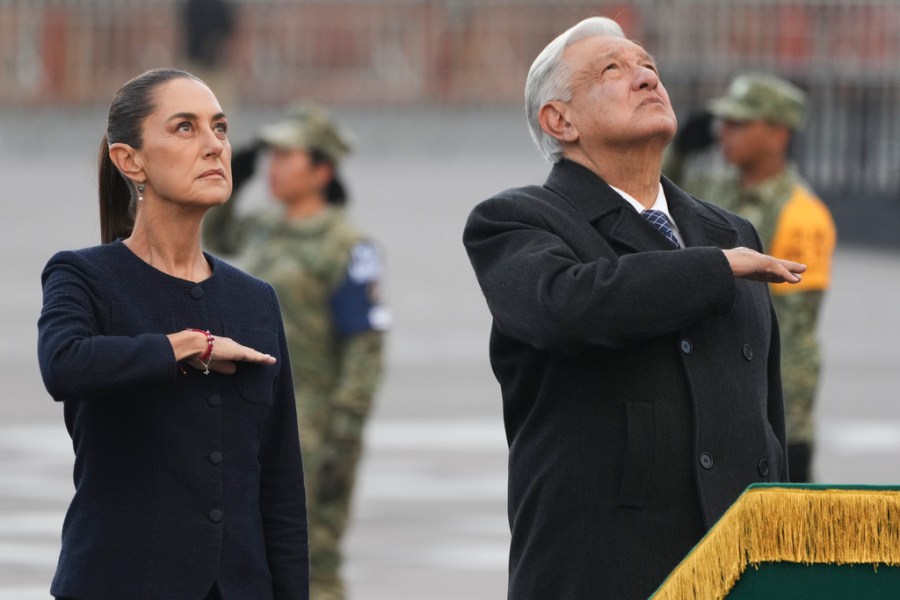
With Donald Trump’s decisive win, U.S.-Latin American policy is back in focus.
Mexico has fallen in with a bad crowd, and its poorly-chosen friends — the dictatorships of Cuba, Nicaragua and Venezuela — will once again be on the lips of the president of the most powerful nation on the planet.
Mexico is the biggest loser of Trump’s victory. The government of leftist Claudia Sheinbaum will have to review its relationship with its neighbor on immigration issues, drug-trafficking and trade. It will have to rethink its confrontational rhetoric and rebuild its relationship with its main trading partner.
In 2023, Mexico decided to extend its arms open wide to China. The result was $4.6 billion in car purchases subsidized by the communist regime — a figure lower than the $4.4 billion dollars allocated in the acquisition of American cars.
Mexico must once and for all close the back door it opened to China to enter the U.S. This risky business should never have existed. Now its actions will have a devastating effect on the Mexican economy and labor market.
Mexico and the U.S will also review the agenda on migration and drug trafficking. Earlier this year, the head of the Drug Enforcement Administration, Anne Milgram, revealed that antidrug cooperation from Mexico has been uneven and insufficient. President elect, Donald Trump has been clear regarding the consequences if Mexico doesn’t implement greater and consistent cooperation on migration and drug trafficking.
Central America is also on the agenda. Salvadoran President Nayib Bukele is one of the big winners with the return of president Trump. He has a first-class relationship with the Republican Party, the conservative press and the presidential family. More investment and trade are expected for the safest country in Central America.
Guatemala and Honduras were also big losers last Tuesday. Honduras is a rising narco-dictatorship, and Guatemala lacks an ideological affinity for Trump.
Costa Rica and Panama be natural Trump partners, with no problem working with the new U.S. president.
The dictatorships of Cuba, Nicaragua and Venezuela will receive a shower of sanctions. None of these countries is willing to hand over power in a democratic way. But they have survived past Democratic and Republican administrations. They are hardened and believe themselves immune to change.
Venezuela is betting on negotiating with Trump. Dictator Nicolas Maduro managed to get the Biden administration to soften sanctions and hopes to repeat his strategy. Some say that Trump is transactional. Here they are wrong again. President-elect Edmundo González, the rightful president of Venezuela, will receive greater support from the north.
Argentina wins with Trump. President Javier Milei will meet with the president in the next few days. There is mutual admiration between the two. This could translate into strong political and financial support — a respite when Argentina needs it most.
Colombia will have a tense relationship with Trump. Although both countries have a strategic and unbreakable link in the fight against drug trafficking, ideology separates them. Things get complicated at home and abroad for President Gustavo Petro.
Brazil, the South American giant governed by the leftist Lula da Silva, will have a cold relationship with the U.S. Lula has called to end the dollar global dominance and has a strong economic and political relation with China. Still, although political differences may separate them, commercial issues unite them in extraordinary ways and for their mutual benefit.
Peru’s proximity to China complicates its relationship with Trump. The mega-port Chancay represents a dangerous hemispheric gateway and a geopolitical piece on the Communist Party’s board.
Today more than ever, a clear, consistent, common-sense U.S. foreign policy for Latin America is essential. Anything short of that would benefit Latin American dictatorships and extracontinental powers such as China and Russia. Now is the time to reset and reroute American policy toward Latin America.
Arturo McFields is an exiled journalist, former ambassador to the OAS and former member of the Norwegian Peace Corps. He is a former alumni of the Security and Defense Seminar at the National Defense University.














